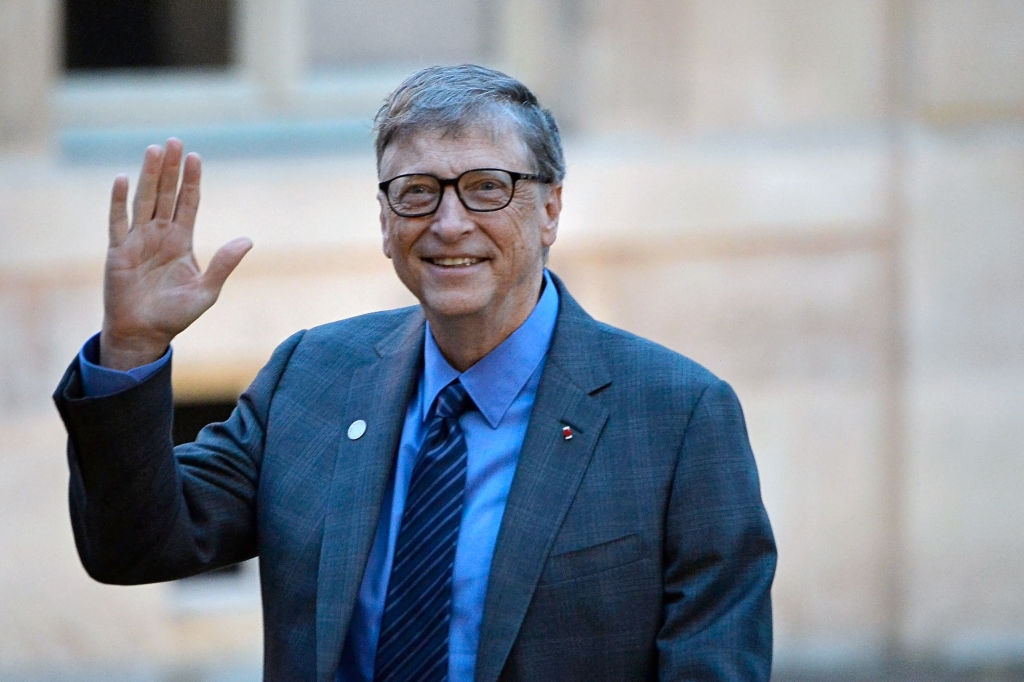Bill Gates reads about 50 books a year, but only a few make his annual list of favorites.
For several years, the Microsoft founder has chosen five titles he enjoyed over the past year and published reviews of them on his Gates Notes blog.
Here are his recommendations.
“Enlightenment Now: The Case for Reason, Science, Humanism, and Progress” by Steven Pinker
In the past, Gates has raved about Pinker’s 2011 book “The Better Angels of Our Nature,” but he now writes that “Enlightenment Now” is even better.
The book, released in 2018, tracks 15 different measures of human progress, including quality of life, knowledge, and safety.
“The result is a holistic picture of how and why the world is getting better,” Gates writes.
He also notes a few of his favorite stats from “Enlightenment Now.” They include: time spent doing laundry fell from 11.5 hours a week in 1920 to an hour and a half in 2014; the global average IQ score is rising by about 3 IQ points every decade; and people are much less likely to die on the job compared to a century ago.
“The Best We Could Do” by Thi Bui (2017)
This illustrated memoir follows the daughter of Vietnamese refugees who came to the US after the fall of Saigon in 1975.
She learns a heartbreaking truth about the sacrifices her parents made for her and her siblings, as well as the turmoil created by French and American occupation in Vietnam.
“I thought she did a great job capturing how daunting it feels to be responsible for your family,” Gates wrote. “At the same time, her family’s experience is different from most (and certainly mine). It’s clear that a lot of the dysfunction surrounding her childhood is a direct result of what happened in Vietnam.”
“Evicted: Poverty and Profit in the American City” by Matthew Desmond (2016)
Desmond, a sociologist at Princeton University, spent 18 months living in two neighborhoods in Milwaukee, Wisconsin — one mostly white, the other mostly black — with high rates of poverty and documented the lives of residents, including landlords and renters.
It was easy to empathize with the subjects, Gates said, because Desmond helps you understand why they make their choices. He won a MacArthur Foundation “genius” grant and a Pulitzer for “Evicted.”
“When you’re paying so much to keep a roof over your head, there’s no room for bad luck,” Gates wrote. “A single bad incident can send you reeling.”
“Believe Me: A Memoir of Love, Death, and Jazz Chickens” by Eddie Izzard (2017)
In this memoir, Izzard writes about how he worked through his childhood struggles, learned new skills, and became a world-renowned comedian, actor, writer, runner, and activist.
Gates said he connected with Izzard even though it would appear they have nothing in common — but that might be the point the author is trying to communicate.
“I’ve recently discovered that I have a lot in common with a funny, dyslexic, transgender actor, comedian, escape artist, unicyclist, ultra-marathoner, and pilot from Great Britain. Except all of the above,” Gates wrote. “We’re all cut from the same cloth. In his words, ‘We are all totally different, but we are all exactly the same.'”
“The Sympathizer” by Viet Thanh Nguyen (2015)
Nguyen’s Pulitzer-winning historical fiction novel is about a Vietnamese double agent who spies on a refugee community in Los Angeles on behalf of the North Vietnamese government.
“Nguyen doesn’t shy away from how traumatic the Vietnam War was for everyone involved. Nor does he pass judgment about where his narrator’s loyalties should lie,” Gates wrote. “Most war stories are clear about which side you should root for — ‘The Sympathizer’ doesn’t let the reader off the hook so easily.”
“Energy and Civilization: A History” by Vaclav Smil (2017)
Gates’ last pick explores how energy — from donkey-powered mills to renewable power sources — has shaped societies throughout history.
Gates has read nearly all of Smil’s 37 books, and his latest one makes the case that energy consumption and economic growth are undeniably linked.
“Yes, our history has a lot to do with kings and queens and games of thrones,” Gates wrote. “Smil shows that it has even more to do with energy innovation.”
Originally published on www.businessinsider.com.
More from Business Insider:
A Harvard researcher invented these $139,000 stackable homes that can be built in under three weeks
The US cities with the worst commutes to work
Follow us here and subscribe here for all the latest news on how you can keep Thriving.
Stay up to date or catch-up on all our podcasts with Arianna Huffington here.


